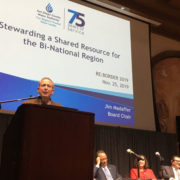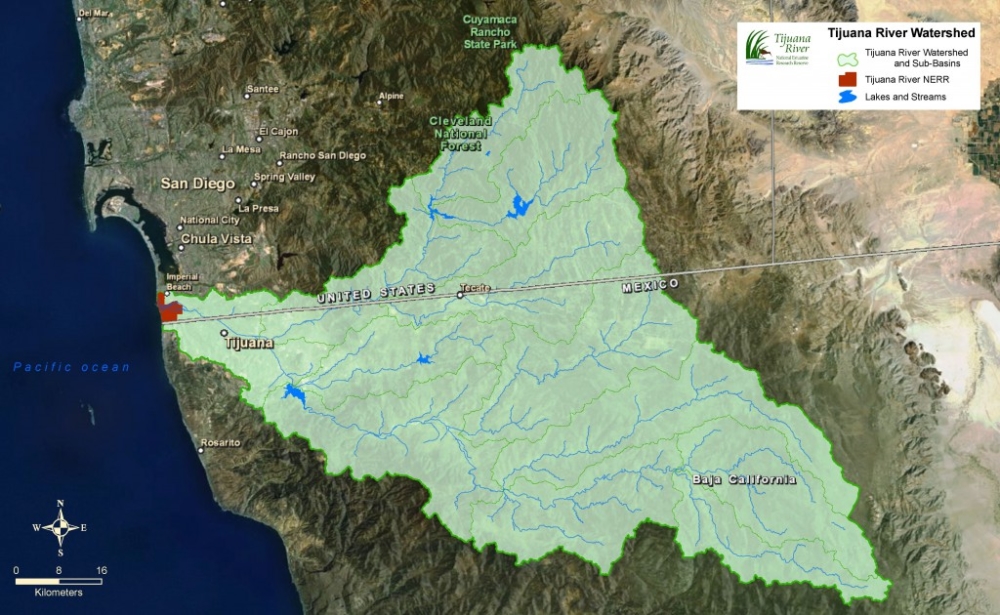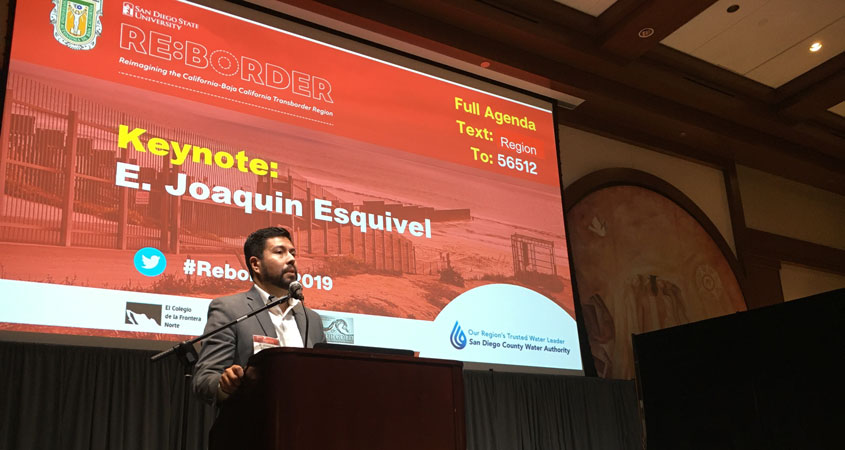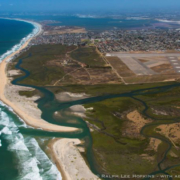A two-day conference in San Diego and Tijuana seeks to forge regional solutions for cross-border water issues by breaking down academic, political and administrative boundaries.
The theme of RE:BORDER 2019 is “The Water We Share.” RE:BORDER is a new initiative from San Diego State University President Adela de la Torre that each year will examine a significant transborder issue of the California-Baja California border region in partnership with our Mexican university and community collaborators.
The binational conference kicks off at San Diego State University at 9 a.m. on November 25 and continues the next day at the Universidad Autónoma De Baja California (UABC) in Tijuana.
Water industry officials and elected leaders from the U.S. and Mexico will join university researchers for a series of panel discussions that explore how SDSU, UABC, and regional partners – including the San Diego County Water Authority and its 24 member agencies – can contribute to innovative solutions for water-related challenges in the transborder region.
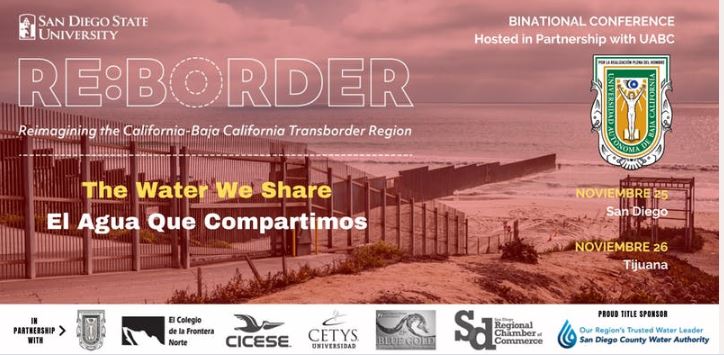
RE:BORDER 2019 is a two-day conference in San Diego and Tijuana that seeks to forge regional solutions for cross-border water issues. Graphic: San Diego State University
Water knows no borders
“When we think about water in every dimension, whether it’s the ocean, to the rivers, to the creeks across the Tijuana River Watershed, there are no borders,” said SDSU President Adela de la Torre. “The conference is a first step toward creating solutions that allow both countries to be collaborative and learn from each other.”
San Diego Mayor Kevin Faulconer will deliver opening remarks at SDSU followed by a special presentation by San Diego County Water Authority Board Chair Jim Madaffer. California State Water Resources Control Board Chair E. Joaquin Esquivel is scheduled to deliver the keynote address. State Senator Juan Vargas will close the first day of the conference.
“Water issues and challenges require collaboration on both sides of the border to reach solutions that transcend political boundaries,” said Water Authority Board Chair Jim Madaffer. “The Water Authority and its 24 member agencies continue to develop local projects and explore opportunities that benefit the region, including Mexico and the Southwest.”
Cross border water challenges and solutions
Water reuse, access to a safe water supply, and the political and administrative boundaries in the transborder region are among the topics for discussion at SDSU.
Water Authority Assistant General Manager Dan Denham is one of several panelists who will explore transborder water challenges from the perspectives of regional stakeholders such as farmers, local and state agencies and environmental groups.
Elsa Saxod, a Water Authority board member representing the City of San Diego, will participate in a panel session that looks at the binational management of the Tijuana River Watershed.
Climate change and the transborder region
Topics for Day 2 of the conference in Tijuana include climate change, water security and risks, water and food, and water and equity.
The sessions will examine how the transborder region will be affected by climate change – including greater risks of floods, landslides and wildfires – how reduced water for agriculture impacts the region, and on-going concerns about uneven access to water resources.
“Tijuana and San Diego form a region closely linked by their economies, societies and culture,” said Natanael Ramírez Angulo, director of the Faculty of Economics and International Relations at UABC. “Understanding the problems and challenges involved in the management and use of water, an essential natural resource, must be a priority not only for governments but also for society itself, and we believe that universities can provide valuable knowledge that can help generate programs and policies that help local and federal governments to be successful in addressing this issue.”

